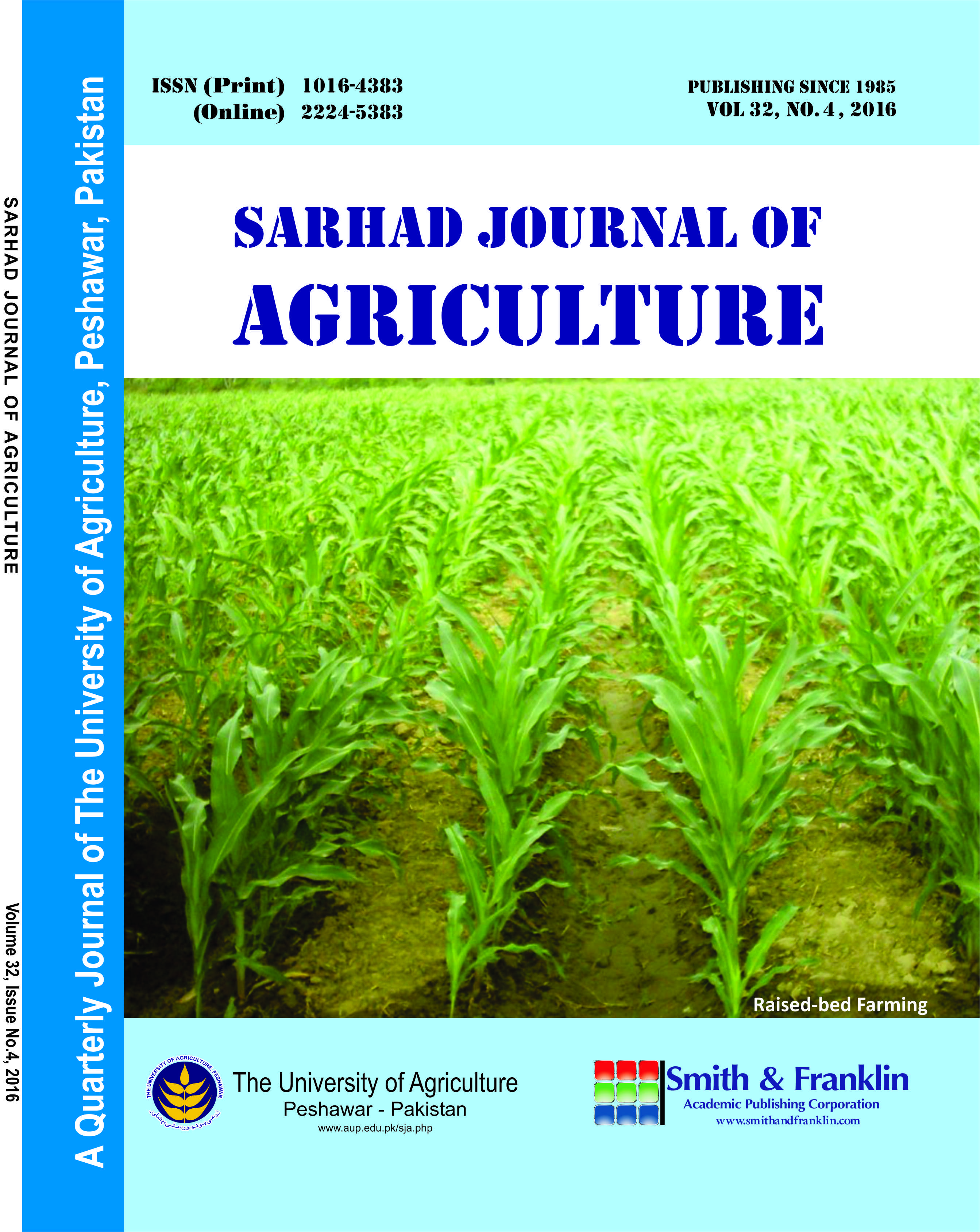Drip Irrigated Vegetable Productivity under Tunnel in Potohar
Drip Irrigated Vegetable Productivity under Tunnel in Potohar
Ghani Akbar*, Muhammad Asif and Zafar Islam
ABSTRACT
Food security of rain-fed area is highly dependent on resource efficient practices under the current anthropogenic and climate change induced challenges in Pakistan. There is urgent need to adopt improved technologies capable of producing more with less water and to ensure continuous food supply throughout the year. For this purpose, growing off-season vegetables under plastic tunnel have elevated importance, because of comparatively less capital cost and skills requirement. Keeping in view these challenges, this study was conducted to evaluate the water and land productivity of drip irrigated off-season tomato (Lycopersicon esculentum Mill.) and cucumber (Cucumis sativus) under tunnel farming compared with traditional open-air farming method in Potohar, a rainfed area in Pakistan. The results indicated increased production potential per unit of land (46%) and per unit of water (74%) and larger farm income (3.47 BCR) than the traditional open-air farming method. These production benefits can be instrumental in improving livelihood and nutrition of remotely located rain-fed farmers in the country in general and Potohar region in particular. However, these findings may be valid for the site-specific conditions, thus needs to be evaluated for recommendations under the wide environmental conditions of rain-fed areas of the country.
To share on other social networks, click on any share button. What are these?







